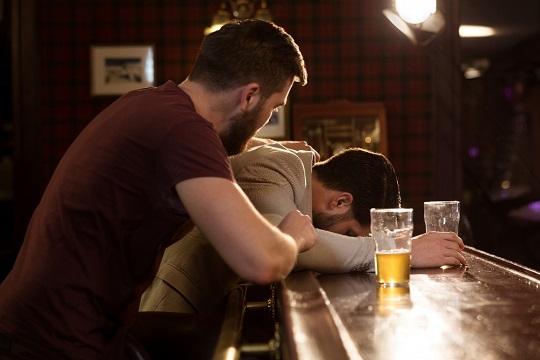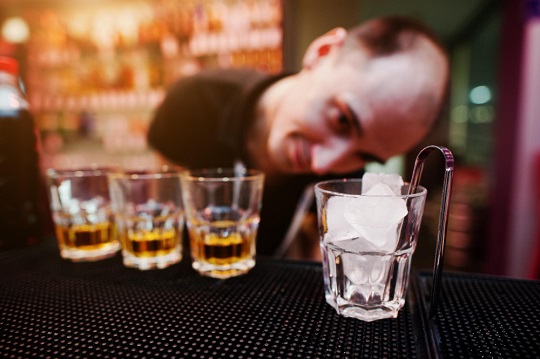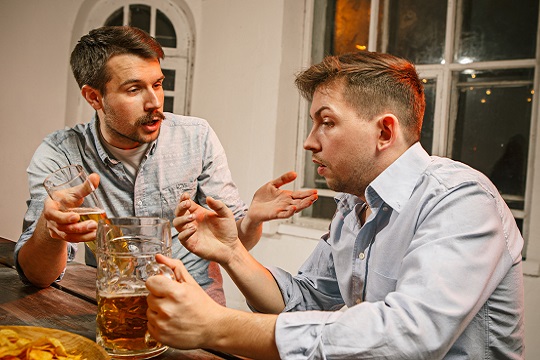 Outpatient
Outpatient
People continue living in their homes and going to specialized intervention counselor for treatment. Adults attend a maximum of nine hours of treatment per week, which can be six hours for adolescents. Many programs provide evening and weekend services to keep people in school or work.
Intensive Outpatient Program (IOP)
People receive 10 to 20 hours of treatment per week (slightly less for adolescents) at a specialized centre while still living at home. Many programs operate evenings and weekends so substance users can continue working or staying in school. This is a better option for people with other medical or psychological problems who need multiple services or have been unsuccessful with outpatient treatment.
Partial Hospitalization Program (PHP)
People attend treatment for four to eight hours a day (20 hours or more a week) while continuing to live at home, although some centres offer accommodation as part of their programs. Most families use this type of treatment when their daughter or son needs an intensive and structured program. Daytime treatment may be appropriate for people who also have mental health problems.
Residential (Rehabilitation)
These programs offer treatment in a residential facility and can last from one month to one year. Residents typically go through different stages as they progress through the program. During certain stages, contact with your daughter or son may be limited. Ask about the program’s policies and rules and any additional services they offer, such as education or vocational training.
Inpatient
Treatment is offered in specialized units of hospitals or clinics that provide detoxification and rehabilitation services. It is generally used for people with serious medical conditions or mental health problems.
Medication Assisted Addiction Treatment (Mat)
For people physically dependent on certain substances, such as heroin or other opioids, alcohol, or nicotine, the medication is provided in an outpatient setting or a health care provider’s office. It is often combined with therapy and other support services.
Types Of Intervention Services In Treatments
People in treatment must receive various intervention services to alleviate the problem. If a specific service is not offered in your daughter’s or son’s program, the staff at that centre may be able to help your family find that service elsewhere.
Individual Therapy
Individual therapy is suitable to focus on a person’s objectives regarding their substance use, such as abstinence, moderation, and reducing the risks of consumption, among others.
Group Therapy
Usually, six to ten people attend, with one or two therapists who facilitate a discussion about the participants’ efforts, experiences, and problems.
Educational Services
Although the primary focus is addressing substance use issues, some programs offer to contact your daughter’s or son’s school to obtain homework assignments and support their education. Others offer assistance to prepare you to take the GED test.
 Vocational Services
Vocational Services
Services to help identify a person’s vocational abilities and interests may include programs to develop job skills and help build a professional resume.
Life Skills
It focuses on teaching behaviour modification tools designed to help adolescents or young adults cope with the stress and challenges of daily life and develop greater self-esteem for better control of their recovery.
Mental Health Treatment
People also diagnosed with mental illness need treatment for both substance use and mental illness. These treatments, ideally, are offered in an integrated manner. Substance use alone will not help alleviate mental illness, and treatment for a depressive disorder alone will not resolve substance use or dependence.
Family Services
These services help family members understand substance use, its impact on their loved ones and Family Intervention and how treatment can help. Families can also explore ways to improve the family relationship and support their daughter or son after the treatment program ends.
Ongoing Care
After a person completes a formal program, it is the aftercare or follow-up, including treatment recommended by a specialist. It is a necessary support plan to ensure that the tools learned in treatment can be used successfully in the real world.…

 Recovering from addiction is more than just stopping using substances. The goals of recovery from substance use or addiction problems are not the same for everyone. Some people can aim to achieve total abstinence, while others can moderate their consumption or reduce the risks of their substance use. For young people, the best decision is abstinence, but any step towards wellness is progress.
Recovering from addiction is more than just stopping using substances. The goals of recovery from substance use or addiction problems are not the same for everyone. Some people can aim to achieve total abstinence, while others can moderate their consumption or reduce the risks of their substance use. For young people, the best decision is abstinence, but any step towards wellness is progress. Participants Motivate Each Other.
Participants Motivate Each Other.